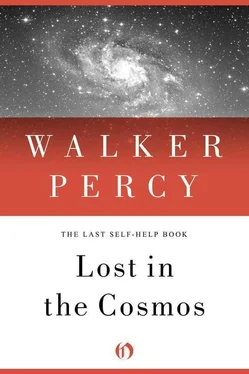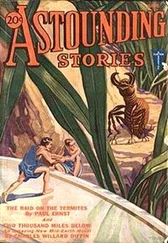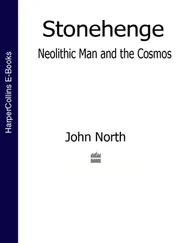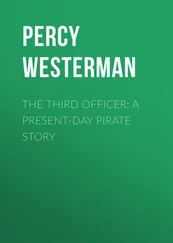(2) As time goes on and our science and technology advance and our knowledge of the Cosmos expands, the gap between our knowledge of the Cosmos and our knowledge of ourselves widens and we become ever more alien to the very Cosmos we understand, and our predicament ever more extreme, so that in the end it is precisely this preposterous remedy, it and no other, which is specified by the preposterous predicament of the human self as its sole remedy.
(CHECK ONE)
A new law of the Cosmos, applicable only to the recently appeared triadic creature: If you’re a big enough fool to climb a tree and like a cat refuse to come down, then someone who loves you has to make as big a fool of himself to rescue you.
A computer printout of the theoretically ideal convert to Christianity at the end of the twentieth century:
A European who is nationally at the greatest remove from historic Christianity, yet retaining, nevertheless, a faint recollection of Christianity
A person at a remove from the van of scientific research, the laboratory, yet informed by a massive secondhand knowledge of science the textbook
A person who, feeling himself curiously depressed despite the benefits of science and technology, despite the highest standard of living in Europe, finds solace in the twentieth-century literature of alienation, poetry, art, and film depicting just such a predicament as his
A person old enough to have exhausted the pleasures of the consumption of science as a world view and the pleasures of the consumption of the art of alienation, but not old enough to have become hopeless or to have committed suicide
Sample readout: Sven Olsen, a thirty-five-year-old high-school biology teacher of Örebro, Sweden, who, on the same day, delivered his last lecture of the year on the DNA molecule and saw the last Bergman film, who is therefore suicidal but who retains sufficient curiosity and irony not to do it.
Thought Experiment (II): Imagine yourself in each of these two situations:
(1) You’re the captain of the starship.
You go to Europa (New Ionia) with Aristarchus Jones, who also selected twenty young Californians, fifteen females and five males, from Trinity County in the north, which, with its little lost valleys in the Chanchelulla mountains, suffered the least radiation.
The mission is successful. Smooth as a billiard ball and encased in green ice, Europa is crisscrossed by an intricate network of lines, like an old drawing of Mars. These cracks, first observed by Voyager 2, turn out to be rivers of water formed by the mild vulcanism beneath the surface ice.
A colony is established at a place that looks like McMurdo Sound, with pack ice and a low rock ridge and a tundra which flowers with pink and violet lichen in the gentle spring. The atmosphere is rarer than that of the Andes, but, given time for the blood to develop a compensatory polycythemia, and with daily rations of cocaine, life is better than tolerable. No radiation is detected. Sperm counts increase. There is every expectation that the human species will survive.
Here is Aristarchus Jones’s famous speech as he surveyed his new home: “A new world! Now I know how the Pilgrim Fathers felt, but unlike the Pilgrims, we left the old world and the old beliefs behind. Free at last! Free at last! No thanks to God, free at last! No irate God, no irate Jews, no irate Christians, no irate Moslems, only liberated loving selves. Now we shall show the Cosmos how to live in peace and freedom. My friends, let us begin by learning to know ourselves, for only by knowing our interior gods and demons can we exorcise them. Our first group session in self-knowledge will be held tomorrow morning. Now let’s get to work.”
Years pass. Twenty pregnancies occur, and seventeen live normal births. Earth plants, fish, and seals flourish. A peaceful agricultural-fishing society is formed. The colony is operated on the principles of Skinner’s Walden II modified by Jungian self-analysis, with suitable rewards for friendly social behavior and punishment, even exile, for aggressive, jealous, hostile, solitary, mystical, or other antisocial behavior. Daily dewalis (from the Hindu) are held in a kind of kiva where a dried lichen remarkably like the earth’s fruticose Rocellae is smoked, inducing a mild euphoria. Larger festivals with dancing and revelry are scheduled for the solstices and equinoxes of the Jovian year.
The Captain, now a sixty-five-year-old man, sits against a rock outside his cave, taking the mild summer sun. The green sky is half filled by the huge northern hemisphere of Jupiter.
He is reading a tattered copy of Henry IV. A laser recorder plays for perhaps the seven hundredth time Mozart’s fourteenth string quartet. Two young women, Candace and Rima, attend him, each lither and more lovely than Kimberly and Tiffany in their prime. One brings him kelp wine. The other anoints him with seal oil. Dr. Jane Smith, fifty-six, sulks in her cave, knowing quite well she would not be allowed to sulk outside.
Candace refills his glass and, giving him a backward glance, takes a step toward her cave. “Could we? That is to say, when?” she asks and adds: “We have an hour before group.”
“Oh, very well.” He rises stiffly, closing the book on Mistress Quickly and Prince Hal but picking up the Mozart. Rima’s fingers tighten angrily on his trapezius muscle. He winces. “But not without Rima,” he tells Candace.
Group is a daily exercise, in assemblages of ten, of self-criticism and honest appraisal of others. The only rule is honesty, absolute honesty. No more lies, no more self-deception, no more secrecy, no more guilt, no more shame. From Aristarchus’s own Little Green Book, the aphorism: “The new race will spring from the corpse of the old guilt.”
The Captain sighs. He alone of the colonists of the new Ionia is somewhat ironical. Getting rid of guilt is one thing. But he doesn’t look forward to the mea culpas and denunciations of the group. It reminds him too much of an AA meeting.
He takes another swig of kelp wine and another look at Candace’s behind. Some things don’t change.
“Very well,” he says again, taking each girl by the hand, the recorder under his arm still playing Mozart.
The three go inside his cave, which is filled with the orange light of Jupiter like a Halloween pumpkin.
(2) You’re the Captain.
You choose to go to Tennessee with Abbot Leibowitz. The colony settles in a pleasant mountain valley. You also sleep in a cave, Lost Cove cave, to reduce exposure to radiation, which is still considerable. Sperm counts vary.
Yet the children seem happy and grow strong. Even the misbegotten do well, ramble up and down mountainsides where in fact they are not much different from the local inbred covites.
You grow wild maize, collards, and trap rabbits, wild pigs, and quail, eat grits and sausage and side meat. Every day you watch ironically yet not without affection as the old abbot and his two black priests, black faces and black robes, the blackest blacks in the South, sing the Divine Office in a quavering chant which sounds more Jewish than Latin, and celebrate Mass with corn bread and scuppernong wine, raise a golden chalice, the abbot’s only souvenir of Utah. The altar is a slab of limestone, as rough as Stonehenge, fallen across the mouth of the cave, which had no doubt served as a table for the survivors of the last war.
Years pass. The Captain, now sixty-five, sits outside the entrance of Lost Cove cave, where Confederates holed up and made gunpowder some six hundred years earlier.
It is October. The sourwood and sassafras are turning, the leaves speckled in scarlet.
The colony has grown to some two hundred souls, both from successful pregnancies — Dr. Jane had been delivered of two more offspring, two boys, Robert E. Lee Schuyler and John Wesley Schuyler — and from an admixture of locals, strays, wanderers, refugees from the old Northeast. Mostly they are Southerners, white Celtic and Anglo-Saxon, and blacks, with a sprinkling of Hispanics, Jews, and Northern ethnics.
Читать дальше












